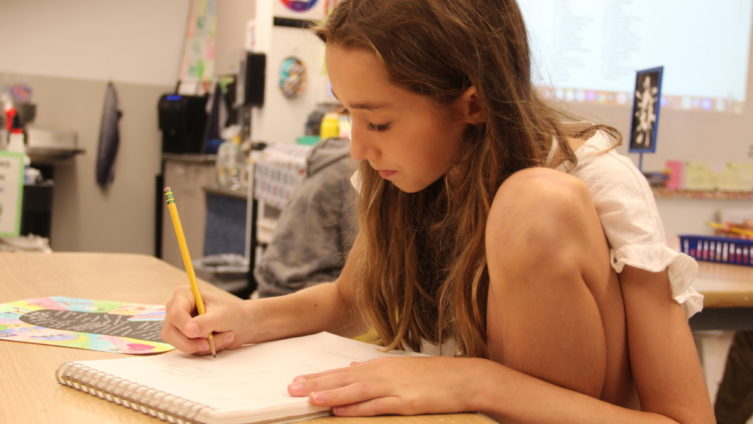
By Jen Tatasciore, Director of Curriculum at TCS
At its core, project-based learning (PBL) is a way to make learning meaningful. Through strong driving questions that promote curiosity, play, and inquiry, students experience integrated content that roots their understandings to a larger purpose. This type of learning provides authentic application of skills and brings learning to life. Teachers become engineers of those purposeful learning experiences – allowing students opportunities to explore, create, and learn through doing.
At The Children’s School, PBL in action means teachers design authentic learning experiences using content area topics to drive the PBL focus and skills. Through this lens, teachers identify times in the year to engage students in specific learning activities that support the learning goals for that grade level, mainly rooted in science and social studies. We follow the Gold Standard PBL process which ensures students have voice, choice, and opportunities for creation and design that lead to the investment of the self – which is what we know makes any learning most impactful.
Projects are often launched using inquiry to allow students to build their own understandings and wonderings around a topic. These understandings will assist them in researching and designing to solve a problem or answer a question rooted in that topic. Teachers work alongside students and build lessons to be responsive to where the students take the unit, all while using the PBL framework. Showcases are held that allow students to present their new understandings in a multitude of ways: presentations through slideshows, storytelling through play or skits, movies, showcasing culinary skills – the possibilities are endless!
Being that the PBL approach is thoroughly linked with the TCS philosophy and mission, TCS provides students a unique learning experience as it is embedded in all aspects of a child’s learning journey preschool – grade 8. Students build on 21st century learning skills as they travel from grade to grade, growing in the ways in which they collaborate, communicate, think critically, and apply creative thinking.
In addition to 21st century learning skills, teachers also introduce students to new content. Assessment of how students are engaging in the content taught during PBL units can be done both formally and informally. Formal assessments might look like a quiz, test, essay, or notebook entry, while informal assessments might be conducted through check-ins, conferring sessions, small group conversations, exit tickets, or general observations. There are many ways to assess student learning throughout a PBL experience! And the best part of PBL is the students taking the time to reflect on their own progress in these skills as well. This is a crucial aspect of PBL as it allows children to identify their strengths and growth areas and make conscious decisions to move themselves forward in the process.
As you hear about this expansive list of skills, it is our sincerest hope you also see these skills transferring beyond the classroom and becoming integrated into everything your children do – at school, at home, and beyond. PBL experiences set students up for success in the world as they learn how to cultivate responses and language for when they’re faced with anything else life throws at them – from navigating challenges and supporting others to taking risks. This is just some of the magic that TCS offers as we live our mission and help children become the best version of themselves.









